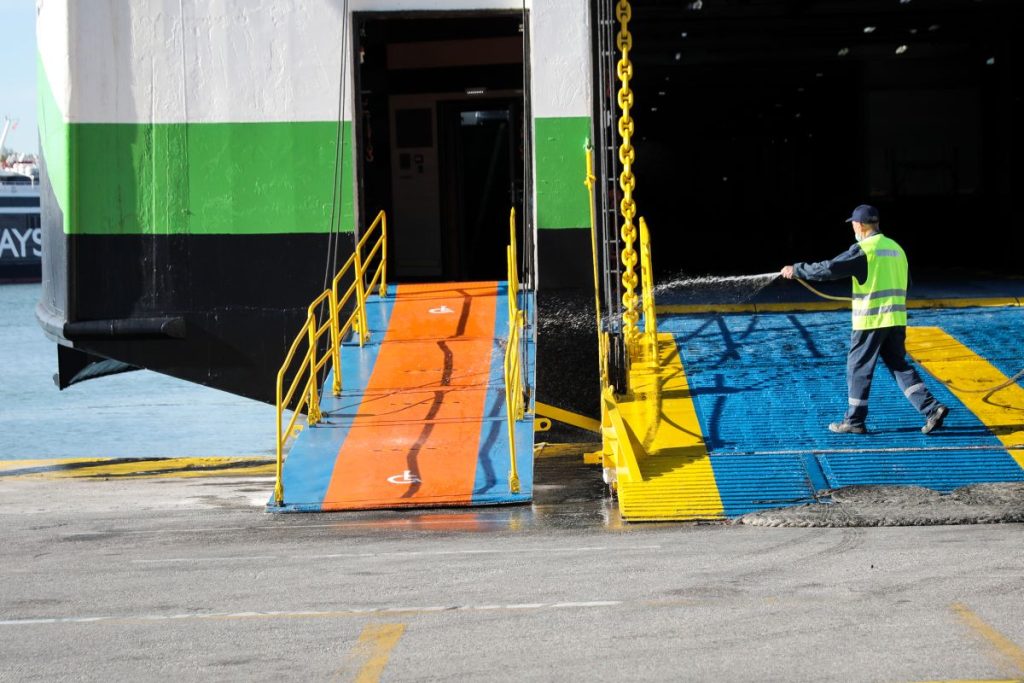You are visiting Thessaly, where people are suffering in the wake of the devastating flooding caused by Storm Daniel. What do you hope to achieve during your visit?
I followed very closely the terrible news coming from Greece this summer, first the fires and then the floods. In the past, during the last decade’s crisis, some people felt that the EU did not show enough solidarity. But this was not the case for our political family, which always stood with Greece and the Greek people. On this occasion again, I want to show first of all my support, and then speak first-hand with people there to understand what could have been done better, and how the EU can contribute to the reparations and also prevent this kind of destruction from happening again.
The Commission has already announced plans to release funds to be used by Greece to support the people affected and rebuild infrastructure. What are your thoughts on this? What priorities would you like to see in this respect?
The Commission reacted positively, but still in general terms of action to be taken. The needs are real now; for real people and businesses suffering existential challenges. The European Commission needs to consider a comprehensive package of measures with immediate and well-targeted support for those most affected. We have examples of such an action with the recent health crisis and the consequences of war for the whole of Europe. We’ve acted immediately and in a timely fashion. For people living in Thessaly, the consequences on their level are comparable to war or a major health crisis. Our action has to be consistent and adequate from day one. In doing so, we have to consider urgent needs and long-term prevention. We should use all the available instruments, including the EU Solidarity Fund, and the Civil Protection Mechanism, but also the continuous and adequate funding of the EU budget. Our Group pleads for a permanent fiscal capacity instrument which, exactly in such exceptional needs, would also become the permanent crisis instrument to be mobilized automatically and in good time.
Generally, what are your suggestions about how Europe can best handle the results of extreme weather?
Scientists have been alerting us for many years now about the consequences of climate change and rising temperatures. Extreme natural phenomena will be on the rise and they will affect different places in different ways. In the south of Europe, we know that fires, desertification, lack of water, and floods are already a problem. We also saw it in Spain in the last few weeks. This means we have to act on two fronts: short-term measures of prevention and alert systems to save lives, plus funds to deal with material losses. But also tackling the root causes of climate warming and loss of biodiversity in the long term. I think there is enough evidence for those right-wing climate skeptics to understand we have a moral duty to stop global warming and the degradation of our planet.
Allow me to ask a question following the SOUEU address this week in Strasbourg. What did you take away from Commission President von der Leyen’s speech? Can you elaborate on what you said that you would have liked to hear a stronger commitment to the Social Pillar? What challenges do you see lying ahead for Europe?
I am proud that the European Union completely changed the paradigm compared to 2008, and that happened because of the Social Democrat demands to this Commission. The Right imposed a response based on austerity to the financial crisis in 2008, but this time we have faced the consequences of the COVID-19 pandemic and of Russia’s war against Ukraine with unity and solidarity. However, there are many people struggling in the EU because of high inflation and rising prices for food and basic goods, and Von der Leyen did not address this. We want a strategy for people to have access to affordable housing, as well as minimum vital income, and an anti-poverty strategy with binding objectives to protect the most vulnerable members of society.
Looking ahead to the European elections, are you concerned about the rise of far-right parties throughout Europe?
Precisely because right-wing populism is fed by social discontent, we need to provide answers to the everyday problems of citizens. We cannot just speak about economic growth and industry. We have to look at a good distribution and equal chances. This is the way to stop the far right, which has no real answers to people’s problems. The months ahead will be crucial to show Europeans that the EU is the best way to face our common problems, in solidarity. I think the European People’s Party (EPP) is also waking up to that reality and Manfred Weber’s experiment looking for alliances with the extreme right has been a complete failure. The Spanish Socialist Workers’ Party (PSOE) has managed to stop a potential government coalition between the Spanish People’s Party (PP) and the far right, and many colleagues in other European countries were relieved to see this new trend and a downturn of the extreme right.



